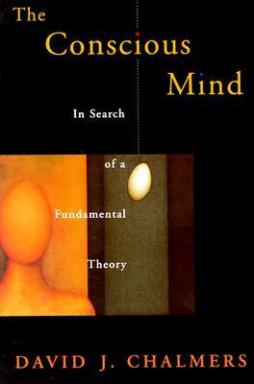In ordinary language, the concepts of predictability and determination are taken to mean roughly the same thing: if something is predictable, then it has definite causes that determine it to be the way it is; conversely, if something has definite causes that determine it to be the way it is, then it is, in principle, predictable. In philosophy, however, these are distinct concepts. Something that is deterministic need not be, in principle, predictable, and again, conversely, something that is predictable need not be deterministic. I will use two examples to illustrate this point, remarking on the second statement first, as I think it is the less significant of the two.
First, we will examine quantum physics. We would like quantum physics to be deterministic and may even have good reason to suggest that it must be, but at this point, we cannot say that with any certainty that it is, in fact, deterministic. Still, even supposing that it is not deterministic, we can use probability based models to predict, with sufficiently high precision, what the results, or outputs, of a quantum system will be.
Second, and I think more importantly, we can look to the universe at large. If we assume that the universe is entirely deterministic—which again we cannot say with any certainty but have good reason to think that it is—then it does not follow that everything in the universe need be predictable, in principle. We could say that a super-being with all the information about every single particle and its momentum could, theoretically, predict the state of the universe at any given time, but if we add materialism to this deterministic universe, this suggestion becomes meaningless. So let us think of it this way: if we want to model a system, we can represent each part of that system in a computer program. In order to do this, we will need to map each bit of information onto its own bit of computer coding, in a one to one fashion. Put simply, if we want to model a system with 10 components, we will need 10 bits of computer code, each mapping one of the ten components*. But we cannot do this with the universe at large. By definition, we need to map every single particle in the universe onto its own bit of computer coding—how can we do this? We have already exhausted every single particle in the universe by defining our system to be modeled—we simply have no particles left that could make up the computer coding for our program. Going back to our system of 10 components: if our universe only contains 10 particles, then we cannot model this system except by using the system itself as the model, but then we aren’t really modeling it, we are just watching the original system play out naturally. In this way, we can see that, even if our universe as a whole is deterministic, we still cannot, in principle, predict everything that is going to happen, because we, in principle, lack the means to do so, excluding the existence of non-physical super-beings.
To drive this home, I am going to borrow a quote from Richard Feynman:
It’s again this chess game business. If you were in just a corner where only a few pieces were involved, you could work out exactly what’s going to happen. And you can always do that when there’s only a few pieces, so you know you understand it. And yet, in the real game, it’s so many pieces you can’t figure out what’s going to happen. So there was a kind of hierarchy of different complexities. It’s hard to believe—it’s incredible, in fact most people don’t believe—that the behaviour of, say, me, one yack-yack, and you, nodding and all this stuff is the result of lots and lots of atoms all obeying these very simple rules.
To conclude, in a way, I want to remark on the relation between determinism, predictability, and our naive conception of free will. Part of the naive conception of free will is that we can, in principle, act in unpredictable ways. It simply is not the case that someone external to me could predict my own own behaviour with perfect precision. Often, the view of determinism, and its lay-equivocation with predictability, is seen as an attack on this conception of free will. But using the argument above, we see this need not be the case. We will never be able to predict the state of the universe at large, and if we cannot do say, we may always be misdefining one of the variables that we use to predict a local, closed system (i.e., for the purpose of this example, a human brain). Determinism does, in fact, have profound implications for free will if it turns out to be true, but they are much more subtle than they might seem at first glance.
*This is an oversimplification. We would also need computer coding for each of the laws describing the relations between the different components, but we will see that we need not even invoke these to illustrate the point.
